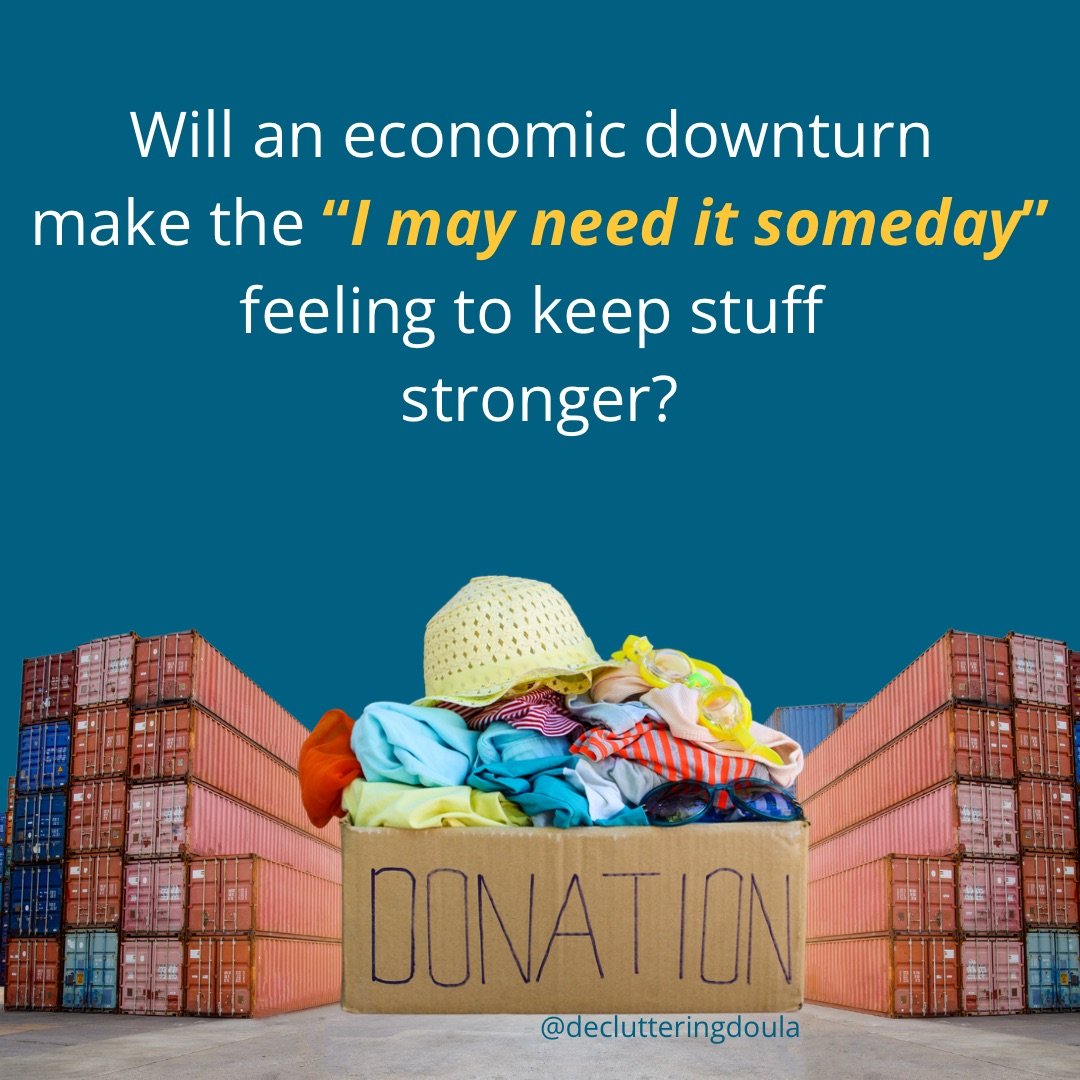To keep or not to keep? That’s the question - made harder by unpredictable times.
As a professional organizer, I’ve been thinking a lot about how an economic downturn may affect our relationship with our stuff, in particular- stuff we no longer want, need or use.
How will it change how myself and my clients will feel about letting go of things?
I normally share the Minimalists’ 20/20 rule (if they can acquire it again in 20 minutes and for $20 dollars, they don’t keep it) and invite the client to make their own dollar limit (mine is closer to $50).
The main idea is that we trust that we can acquire an item for a set amount of money, and rather easily, if and when we need it again.
But what if that changes?
As a Virgo who became a professional organizer, I am uncomfortable when I don’t know how to plan for something.
So, to quell my own anxieties….Let’s turn to the facts.
Clutter increases our cortisol.
A 2010 study found this to be the case and proportionally more so for women.
As a reminder, Cortisol is the stress hormone. It can disrupt our sleep, make us gain weight, feel more pain and generally put us in a bad way.
Tricia Hersey says (and the book is titled), Rest is Resistance.
If rest is resistance, the home should be as restful as possible and therefore, uncluttered.
So, despite the upcoming unknowns in our economy, we would still benefit by letting go of clutter.
That being said, what is clutter?
Clutter, like beauty, is in the eye of the beholder.
Peter Walsh says, “clutter is not just the items on your floor, it’s anything that stands between you and the life you want to be living.”
Barbara Hemphill says, “clutter is postponed decisions.”
And more generally, clutter has been said to be anything that is in excess of what you need, use and love.
See how with those definitions, it could be the case that one person’s trash is another person’s treasure?
That is why a professional organizer never comes in and tells you to, “throw it all away.” (This is the most common fear I hear from people about the profession.)
Everyone is uniQ and has uniQ needs and wants!
Rather, a professional organizer will help you discern what is right for you:
at this stage in your life
realistically (as to not add more to your already full plate, setting up or streamlining systems)
&
by helping you process the emotions verbally or otherwise, that is needed to let it go
Alternatives (due to the times) may be that items go to - or are retained for - mutual aid efforts. Tools of all trades may be kept for community banks, clothing can go to clothing swaps and mending events but true clutter would still benefit you by checking itself off your to-do list and going elsewhere.
What are your thoughts on this topic? I’d love to hear!
You are enough and you have enough, I’m glad we’ve had this talk!
AmyEllen
